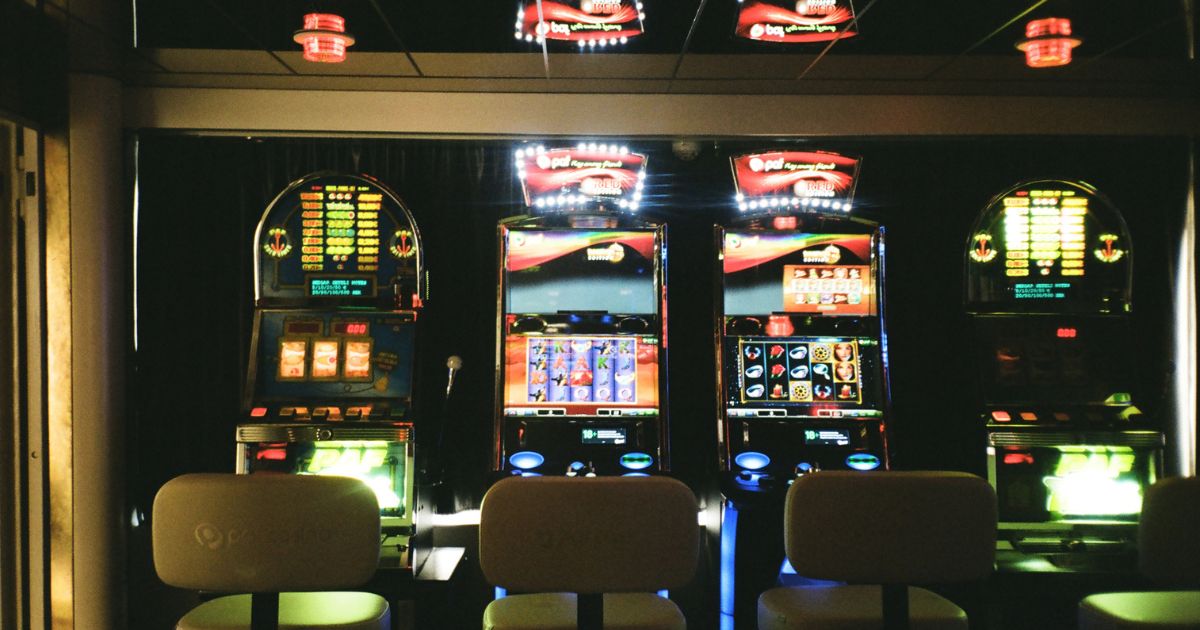Slot machines are among the most popular forms of gambling worldwide, both in casinos and online. Their accessibility, fast gameplay, and engaging design make them appealing to players of all ages. But behind the excitement lies a growing concern: slot addiction.
Addiction to slots can silently develop, often unnoticed until it causes emotional, financial, or social problems. Recognizing the symptoms early is the key to preventing long-term harm. To do this, readers must first understand what slot addiction is and how it differs from casual play.
What Is Slot Addiction?
Slot addiction is a form of behavioral gambling disorder where individuals lose control over their playing habits. Unlike casual players, who engage for fun and stop when satisfied, addicted players feel compelled to continue regardless of consequences.
Key characteristics include:
- Loss of Control: Inability to stop despite negative outcomes.
- Compulsion: Feeling the need to play, even when not enjoyable.
- Escalation: Increasing time or money spent to chase the same thrill.
Slot addiction is fueled by the unpredictability of outcomes, making it distinct from casual entertainment. Understanding this definition sets the stage for identifying the causes that drive addiction.
Causes of Slot Addiction
Addiction doesn’t occur overnight—it develops from a combination of psychological triggers, environmental factors, and slot design features.
- Random Rewards: Slots operate on random number generators (RNGs), which deliver unpredictable payouts. This variability is highly addictive.
- Convenience: Online slots are available 24/7, removing natural stopping points.
- Emotional Highs: Wins, even small ones, release dopamine, reinforcing play.
- Near-Misses: Spins that almost win encourage players to keep going.
- Stress Relief: Some use slots as an escape from personal problems, which deepens dependency.
These causes don’t just create habits—they manifest as symptoms that can be observed emotionally, behaviorally, and financially.
Emotional Symptoms of Slot Addiction
One of the first warning signs of slot addiction is emotional instability. The constant ups and downs of play affect mood in noticeable ways.
- Anxiety: Worry about money or the next game session.
- Irritability: Frustration when unable to play or after losses.
- Euphoria: Intense highs following wins, even small ones.
Mood Swings and Irritability
Unstable moods are a major red flag. Addicted players often swing between excitement during wins and anger or sadness during losses. These shifts not only affect gaming behavior but also spill into personal relationships, work, and daily life.
Emotional changes lead directly into behavioral symptoms, the next key dimension of slot addiction.
Behavioral Symptoms of Slot Addiction
Behaviors are often the clearest indicators of addiction. Common signs include:
- Chasing Losses: Continuously playing to recover money already lost.
- Neglecting Responsibilities: Ignoring work, family, or social commitments.
- Lying About Gambling: Hiding or minimizing time and money spent on slots.
- Loss of Interest in Other Activities: Preferring slots over hobbies or relationships.
These behavioral shifts reveal how addiction interferes with daily life and often cause financial consequences.
Financial Symptoms of Slot Addiction
Addiction to slots nearly always results in financial strain. Warning signs include:
- Overspending: Consistently exceeding bankroll or personal budget.
- Debt Accumulation: Borrowing money or using credit cards to gamble.
- Financial Secrecy: Hiding statements or lying about expenses.
- Instability: Difficulty paying bills or covering basic needs.
The difference between financial stability and instability is often determined by whether these symptoms are recognized and addressed early. Left unchecked, they can escalate into long-term consequences.
Long-Term Consequences of Ignoring the Signs
Ignoring the symptoms of slot addiction can lead to serious and lasting harm:
- Mental Health Decline: Stress, anxiety, and depression often worsen.
- Relationship Strain: Trust issues and conflicts with family or partners.
- Financial Collapse: Uncontrolled debt leading to severe hardship.
- Addiction Escalation: Gambling may spread into other high-risk behaviors.
These long-term consequences highlight the urgency of recognizing symptoms early and adopting strategies to regain control.
Strategies to Address Slot Addiction Symptoms
Recovering from or managing slot addiction is possible with the right tools and mindset. Practical strategies include:
- Set Win and Loss Limits: Define strict boundaries before playing.
- Take Scheduled Breaks: Step away regularly to reset emotions.
- Use Platform Tools: Leverage deposit caps, timers, and self-exclusion features.
- Seek Professional Help: Therapists and support groups provide valuable assistance.
- Focus on Entertainment Value: Reframe slots as recreation, not income.
These methods empower players to address symptoms while promoting long-term responsible play.
Reliable Platforms Supporting Responsible Gaming
Safe and transparent platforms also play a role in preventing slot addiction. They provide features that help players monitor and manage their gaming behavior.
Exploring Trusted Options
- ทางเข้าufabet747 – Readers can follow updates and safe entertainment here, including football and casino services with responsible tools.
- คาสิโนออนไลน์sa – A trusted casino environment offering fair systems and responsible play support.
Choosing reliable platforms ensures that strategies against addiction are supported by systems designed for transparency and player safety.
Conclusion – Recognizing the Signs Early for Safer Play
Slot addiction is a growing concern, but it is also a preventable one. By understanding its definition, recognizing emotional, behavioral, and financial symptoms, and being aware of long-term consequences, players can take proactive steps toward safety.
We’ve explored the causes, signs, consequences, and strategies, alongside the role of responsible platforms. The message is clear: the sooner the signs are recognized, the easier they are to manage.
By monitoring habits, setting boundaries, and choosing reliable platforms, players can enjoy slots responsibly while protecting their well-being and future.









